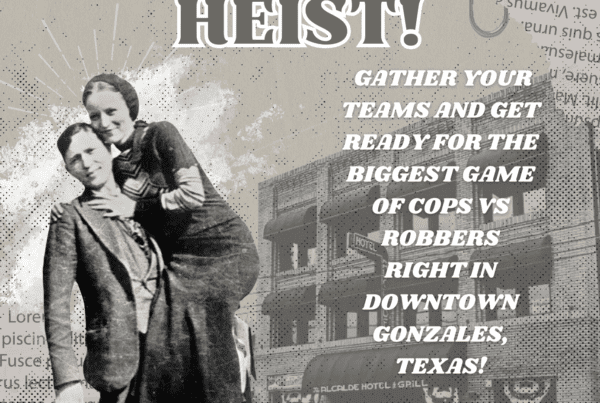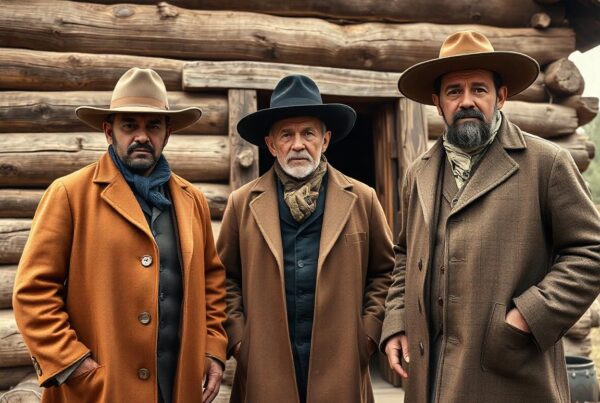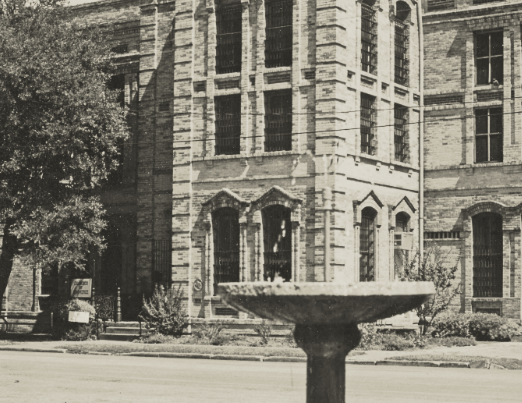Will Blackwell was sentenced to be hanged on Friday, March 6, for the murder of Lump Rainey the previous year. The law required hanging inside the jail whenever possible, and he was executed inside the Gonzales jail. On January 29, the City Council passed an ordinance regarding vaccinations due to the danger of smallpox. All unvaccinated individuals were required to be vaccinated, and Sunday School and scholars were to be excluded until they had proof of vaccination. The Council arranged for local physicians to vaccinate all indigent persons, and the marshal was tasked with enforcing this ordinance. A hop was held on February 12 by Misses Kokernot and Jeffries, which was considered one of the most elegant and enjoyable affairs ever given in Gonzales. The Gonzales Inquirer stated on February 19 that it was read by at least 5000 people every week and was still a bargain at $1.50 CASH per year. Mr. T.S. Walker and family enjoyed bananas of their own growing on March 5. Two carloads of cattle were shipped to market on the Southern Pacific Railroad, with one heading for St. Louis on Monday and the other leaving for Fort Worth on Tuesday. On April 16, W.B. Houston shipped eleven carloads of beef to St. Louis on the San Antonio and Aransas Pass Railroad, arriving in St. Louis at 3 p.m. on the same day. The Board of Trustees of the school was notified on May 28 that the high school had been made an auxiliary of the University of Texas, allowing graduates to enter the University without examination. In the spring, Jobe sold a right-of-way to the Galveston, Harrisburg and San Antonio Railroad across his property in order to ship out his bricks. Robert Abernethy and Amos Ellis became the first two graduates of GHS in June. Jobe’s yard was capable of turning out 40,000 steam-pressed bricks per day and employed about fifty hands. Mr. T.S. Walker was preparing to build a dam across the Guadalupe River, providing cheap power for the city. The Gonzales Ice and Bottling Works, owned by Mr. H. Beringer, was located in the same area as the brick yard. William Boothe and August Kleine received a rowboat that could carry six people on August 20. About 250 bales of cotton per day were coming into town during the week of September 10. School books and supplies were available at Eastland’s Drug and Book Store on September 17. The ladies attending the ninth session of the Woman’s Missionary Society of the West Texas Conference were escorted around town in carriages and shown the sights and beauties of Old Gonzales on October 1. J.H. Remschel advertised the “best ready-made fencing ever seen in Gonzales” and “second-hand lumber at very low prices” on October 15. R.H. Walker, Prescription Druggist, declared that he would fill prescriptions “day, night or Sundays” and also had the “largest line of wall paper ever brought to Gonzales” on October 22. Businessmen of the county were holding meetings to discuss plans for a cotton gin and oil mill on October 29. An editorial on November 26 declared that property owners should keep their sidewalks in good order for the safety of the citizens, and it was not the business of the Council to do this, but the property owner. The finishing touches were given to the new pews in the Methodist Church last week on November 26, and they were more comfortable and arranged in a half-circle. Kleine’s Furniture Store advertised a fine line of “Fancy” Rockers. The Masonic Commandery Number 11 Knights Templars added the third floor to Peck and Fly Building when it was built at 519 St. Joseph Street (Block 19, east side).
Visitor Guide






304 Saint Louis, Gonzales, TX 78629 | 888-672-1095
Contact Us | Directory | City of Gonzales | Gonzales Chamber of Commerce
GONZALES TRAILS & TALES
Recent Posts / View All Posts
Here it is! Our February Pin! We kicked off our…
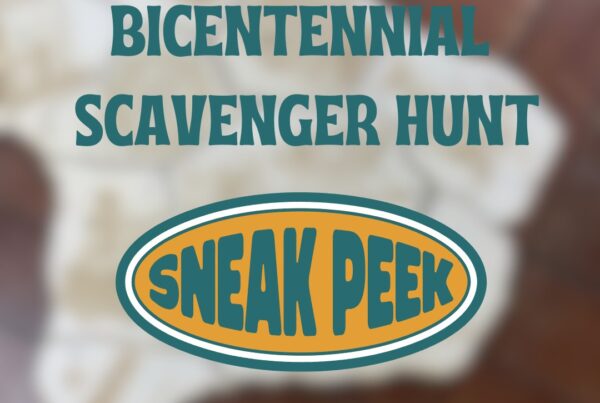
The Gonzales Bicentennial Scavenger Hunt!
Molly Manning | Bicentennial, Scavenger Hunt | No CommentsCelebrate Gonzales' 200th anniversary with an exciting and unique adventure…
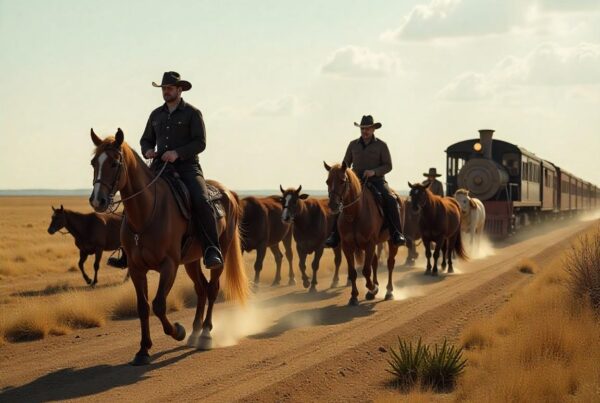
Gonzales, Texas Bicentennial Celebration: A Historic Milestone in 2025
Molly Manning | Bicentennial | No CommentsIn 2025, the charming town of Gonzales, Texas, will mark…

CATTLE COUNTRY MUSIC FESTIVAL ANNOUNCES RETURN TO GONZALES, TEXAS ON APRIL 10-12, 2025
Molly Manning | Uncategorized | No CommentsFestival To Return Bigger and Better In Celebration of the…

Chasing Shadows: Your Guide to Experiencing the Solar Eclipse in Gonzales, TX
Molly Manning | Uncategorized | No CommentsChasing Shadows on April 8th in Gonzales, TX Get ready…

12 Sweet Ways to Celebrate Love on Valentine’s Day in Gonzales, TX
Molly Manning | Plan Your Trip | No CommentsLove is in the air, and Valentine's Day is just…

304 Saint Louis, Gonzales, TX 78629 | 888-672-1095
Contact Us | Directory | City of Gonzales | Gonzales Chamber of Commerce
© 2025 Tour Gonzales.
Website updated and managed by MaryMakingTX


